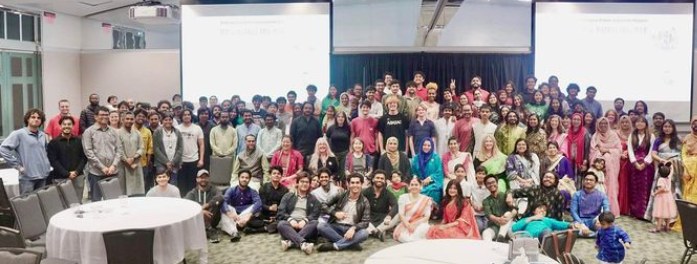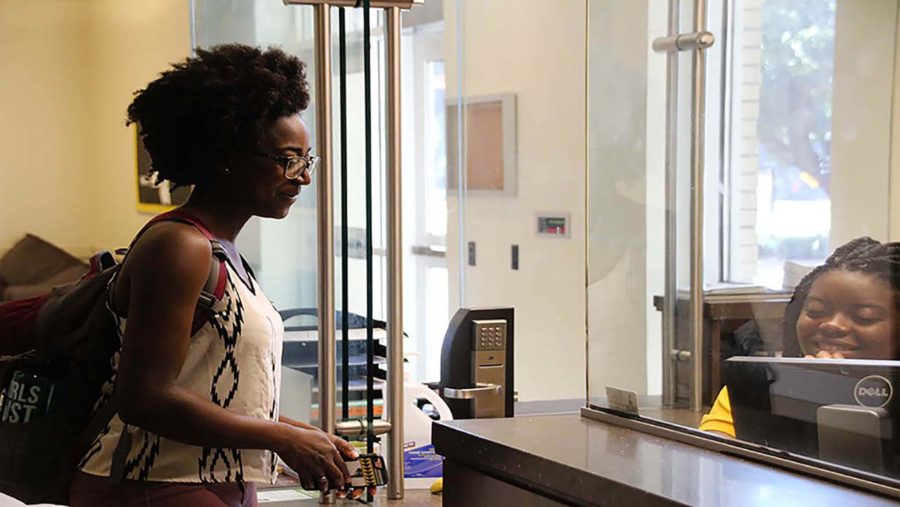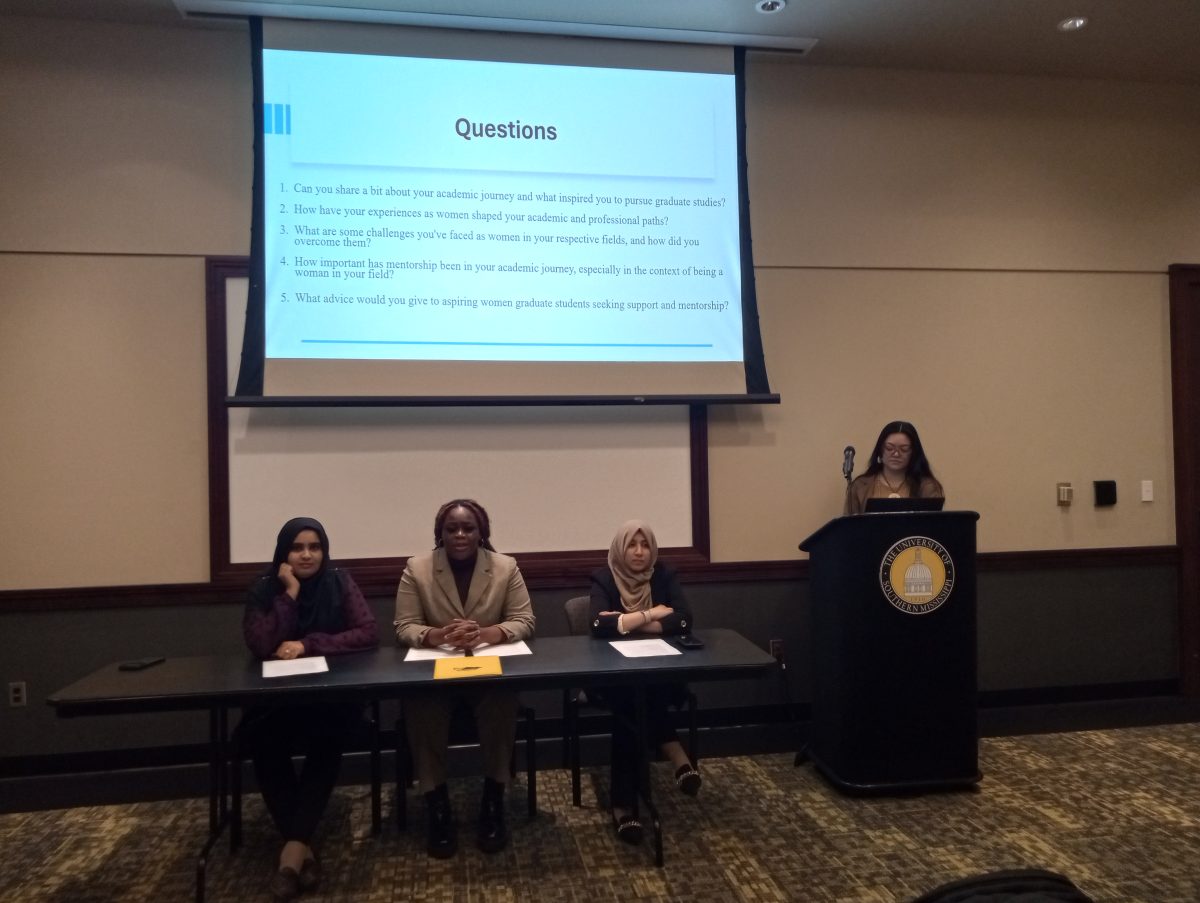Current and former resident assistants at The University of Southern Mississippi leveled troubling accusations against the school’s Department of Housing and Residence Life, which they said often takes advantage of its workers and rarely listens to them.
According to a group of RAs that prefers to remain anonymous, “higher members” in the department often disrespect their subordinates and leave them feeling unheard and frustrated. The group said that the problem has begun to impact RA retention rates as well as the retention rates of other employees in the department.
Scott Blackwell, the department’s executive director, disagreed.
“The Resident Assistant position continues to be a desirable student employment position at Southern Miss,” Blackwell said. “For the Fall 2017 term, we have 103 RA positions total and all RA positions are filled, with no vacant positions. We also had 18 more RA staff members return to their RA positions for a second year in 2017 compared to 2016. For 2017 we filled 41 RA openings from a pool of 104 applicants.”
Nathan “Paco” Murrell, a former RA who consented to use his real name, said that he believes there is a bigger problem being kept from employees, though he doesn’t know what it is.
“It’s not a coincidence that basically 80 percent of residence life has left, as far as residence life coordinators [are concerned],” Murrell said.
Residence Life Coordinators supervise RAs and, like RAs, live in residence halls. Unlike RAs, though, they are graduate-level professionals in full-time positions.
“Last year was probably the worst because we were supposed to have 10 RLCs, but we had five,” current RA Caitlin Devin* said. “And now, we’re down to three.”
Blackwell disagreed with those accusations as well.
“We currently have all nine RLC positions filled,” he said. “While we are fully staffed with RLCs, staff do eventually leave the position in order to advance to higher-level, middle management positions in university housing or student affairs. The RLC position is typically an entry-level position in the field of university housing administration, with many in these positions moving on after two to three years.
Lack of organization and consistency between buildings is another problem with which the group of RAs says they are often forced to contend.
Though they are all told they can work up to 10 hours a week, some live in residence halls with numerous desk assistants who share those hours.
“Giving all RAs and desk assistants the maximum number of work hours each week – up to 10 for RAs and up to 20 for desk assistants – is an ongoing challenge each year,” said Blackwell. “Many desk assistants rely on their desk assistant jobs and work hours to cover some college costs, just like the RAs.”
Others live in residence halls where they are forced to serve multiple shifts. RAs are only allowed to work in their specific buildings.
“I want 10 hours a week, but because I live in this specific building, there aren’t shifts open for me,” said Devin. “I can’t work other shifts in other buildings that need workers. The lack of organization and planning out is really frustrating.”
In spite of the fact that the department can’t guarantee its employees the hours they require, the group said it does not allow them to pursue second jobs.
It does, however, provide compensation in the form of a dorm room – which can be anywhere between $2,483 to $3,299 – and the default $2,020 “Go Gold” meal plan. Additionally, for the past three years the department has offered RAs an optional health insurance coverage plan “at no cost to the RAs but at considerable cost to the department,” according to Blackwell.
“The benefits [of being an RA] are great,” Alyssa Cameron, another current RA, said. “You pay for my room, you pay for my meal plan… But what you don’t pay for is day-to-day expenses. Bills, car notes – there’s so many extra financial situations that you don’t know people are in.”
According to frequently asked questions readily available online on the department’s website, however, RAs “may be approved outside employment up to 10 hours per week. However, if the RA fails to meet their job expectations, the Department of Residence Life may require them to discontinue the outside employment.” Additionally, the department requires RAs seeking additional jobs to submit job proposals listing “potential job site, responsibilities and time commitment.”
This differs from requirements at other universities in the state. The Department of Student Housing at the University of Mississippi lists as one of its conditions of employment, “during term of appointment, [community assistants may not] have any other assistantship, fellowship or other employment regardless of inside or outside the University of Mississippi.”
The Mississippi State University handbook says, “During the first semester as an RA, the RA agrees to accept no additional employment on or off campus. Additional employment must be an off campus position unless otherwise approved by the Associate Director for Residence Life. Up to 10 hours per week of outside employment may be allowed after the first semester if approved by the RA’s RD, Area Coordinator and the Associate Director for Residence Life. After the first semester on staff, any employment or participation in activities, such as internships, joining a social organization or holding office in a club or organization, must be approved by the RD, Area Coordinator and Associate Director for Residence Life.”
USM’s department has a Resident Assistant Advisory Board through which resident assistants can formally lodge complaints.
When anyone attempts to question the way things are done, the group says they do not get far.
“What RAAB does is they’re supposed to be that communication, they’re supposed to hear us out,” said Cameron. “And then they write out proposals to change [problems] and send them up. The problem is, that’s where it stops. We never get proposals back; we don’t get any feedback.”
“They’re constantly shutting down stuff,” Devin said. “They aren’t receptive to new ideas. It takes so much effort to make changes.”
Additionally, the group says that subordinates are afraid to speak out in fear of having their positions terminated.
“It’s like being in a terrible relationship, but you have a dog together,” Maya Jody, another current RA, said. “You love that dog – even if your partner treats you like you’re replaceable.”
Blackwell said he was troubled by the group’s accusations.
“We in the Department of Housing and Residence life are receptive to change, responsive to student and staff concerns and advocate for Southern Miss students,” Blackwell said. “Perceived disrespect of staff is of concern to me. The RA position, while demanding, can be rewarding in many ways. No other student worker position carries with it the level of responsibility associated with housing more than 3,000 students on campus. Ideally, the RA candidates seek the RA position not only for the extrinsic reward of compensation but also for intrinsic rewards, such as on-the-job learning and the experience of performing meaningful and important work while attending Southern Miss, which culminate in including the position on a resume and being able to answer potential employers’ questions about the RA job, lessons learned, and how the RA position helped the RA become who she or he is and how they will be assets in work or graduate or professional school environments after graduating from Southern Miss.”
*Names have been changed using a random name generator to protect identity




































